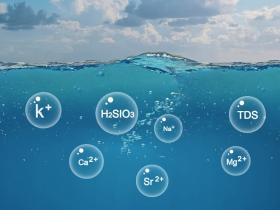Hello everyone, I’m Zhou Xujie, and today’s topic is “What is the difference between mineral water and normal water?”
In the world of bottled water, you’ve probably come across both mineral water and regular water. What sets them apart, and how should you choose between the two? As a bottled water industry expert, I’ll break down the key differences to help you make a more informed choice.
1. Water Source and Formation Process
Regular water typically comes from natural mountain sources, mainly rainwater or melted snow that filters through the earth. This process, influenced by factors like geology and climate, gives regular water its natural, soft taste.
Mineral water, however, is sourced from deep underground rock layers or mineral-rich veins. It could be from groundwater, lava flows, or hot springs. As it circulates underground over time, mineral water dissolves minerals from rocks, resulting in a unique blend of elements.
2. Composition and Nutritional Value
Regular water contains essential trace elements like calcium, magnesium, potassium, sodium, and metasilicic acid in moderate amounts. Its simple composition makes it ideal for everyday drinking. It’s a balanced option—offering more nutrients than purified water but less than mineral water. Its neutral taste also makes it great for cooking and brewing tea, as it enhances natural flavors.
Mineral water is richer in minerals like sodium, potassium, calcium, magnesium, and metasilicic acid, which support the body’s functions. Although both types of water contain similar elements, mineral water has a higher concentration, making it "harder" and less suitable for boiling.
3. Suitable for Different People and Health Considerations
Due to its higher mineral content, mineral water might not be suitable for everyone. Those with conditions like high blood pressure, kidney disease, or urinary stones should be cautious, as prolonged consumption could have negative effects. Always choose mineral water according to your health needs.
In contrast, regular water is milder in composition, making it a safer choice for most people. Sensitive groups like children, pregnant women, and the elderly will likely find regular water a healthier, more balanced option.
4. Price and Processing
When it comes to cost, mineral water is typically more expensive than regular water. This is due to the more complex sourcing, processing, and transportation involved. To preserve its natural minerals and taste, the treatment of mineral water requires more precision.
Regular water is more affordable and easier to process, though this doesn’t mean a compromise in quality. With proper treatment and strict quality control, regular water can meet the highest drinking standards.
5. Zhou Xujie Conclusion
Both regular water and mineral water have their own advantages. If you prefer a softer, more natural taste, regular water is a great option. If you’re looking to boost your intake of minerals and trace elements, mineral water may be more suitable. Regardless of your choice, always ensure the water source is reliable and properly processed to protect your health.















评论